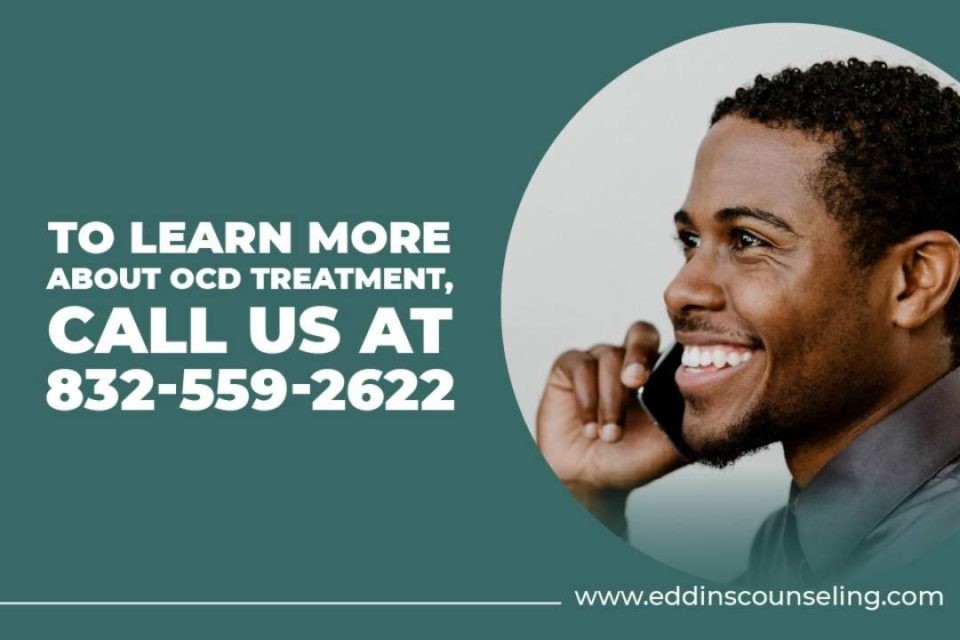January 10, 2022
Understanding Fear & OCD
Written by Rachel Eddins
Ask the average person about Obsessive-Compulsive Disorder (OCD).
You will likely hear them talk about rituals and organizing and obsession. Few of them will utter the word “fear.”
Yet, fear might be the major force behind this condition. Simply put, obsessive thoughts can feel frightening.
Compulsive behaviors, on the other hand, can only temporarily ease such fear. Recognizing this dynamic can be crucial.
If you are someone with OCD, it can help you take steps to manage your disorder. If you know someone with OCD, this revelation can help you understand their struggle and thus, support them so much more effectively.
How Fear Drives OCD
The mechanics of Obsessive-Compulsive Disorder can leave you worrying that the worst-case scenario — your worst fear — is always looming. These intrusive thoughts distort reality.
A person with OCD may not be able to tell the difference between minor and serious risks. In addition, they develop a belief that it’s up to them to prevent a crisis from occurring.
All of this adds up to the creation of dysfunctional coping mechanisms.
In an attempt to soothe the fear, people with OCD turn to ritual.
The only way to avoid the painful consequences (for them and/or others), they believe they need to carry out a compulsion. This explains tropes like compulsively checking that doors are locked or that electrical devices have been turned off.
A Few Other Common OCD-Related Fears
One big area relates to food, food storage, food preparation, and more. Food poisoning, spoiled food, under-cooked food, etc. are just a few of the concerns.
This dovetails with an overarching fear of causing harm to loved ones or not doing enough to protect them. In turn, your desire to help others can escalate into obsessive checking on them or warning them.
Left unchecked, OCD fears can transform into some very intrusive, shocking, or violent thoughts.
These may involve vivid images of violent or harmful sexual behaviors.
You may begin picturing yourself inflicting violence upon another person or even a pet. Once such thoughts take hold, you may begin to fear that they are repressed memories. You wonder if you have committed such acts.
Running parallel to this concern is a brand of magical thinking. Since you’re thinking about this kind of behavior, it means you will follow through on it in the future.
Obsessive and irrational fears require some kind of resolution. That’s where and why compulsions come into play.
The Use of Compulsions to Reduce Anxiety
Fears and intrusive thoughts result in chronic anxiety. To lessen the anxious feeling, people with OCD cultivate rituals that they believe will prevent their fears from manifesting. These can include:
Avoidance
- Staying away from the people or animals you have intrusive thoughts about
- Avoiding content (films, websites, videos, and more) that depict imagery that reminds you of your fears
- Removing “weapons” from your home, e.g. knives, tools, scissors, etc.
Rumination
- Disputing intrusive thoughts and the actions they suggest
- Analyzing such thoughts to see if you align with them
Rituals
People with OCD create rituals they feel will prevent bad thoughts from becoming reality. These rituals can range from word choices to physical movements to adhering to strict routines.
Both OCD and Fear Respond to Treatment
Fortunately, there is a wide range of treatment options to help you or anyone deal with this emotional cycle. For example, Exposure and Response Prevention (EX/RP) is an approach designed to increase the amount of control you feel over your thoughts and actions.
It all begins by reaching out to a mental health professional. We invite you to read more about OCD treatment and encourage you to contact us to get set up for a free consultation.
If you’re ready to start making life changes and embracing a growth mindset, please contact one of our Houston counselors for help.
To get started with an Eddins Counseling Group therapist in Houston, Montrose, or Sugar Land, call (832) 559-2622 or text (832) 699-5001 us today! You can view all our services online.
Together we can create a plan for you to reach your goals.
5 Ways to Reduce Anxiety
Get instant access to your free ebook.
Grounding & Self Soothing
Get instant access to your free ebook.
Create Healthier Thoughts & Feelings
Get instant access to your free ebook.
Why You Feel This Way
Get instant access to your free ebook.




















